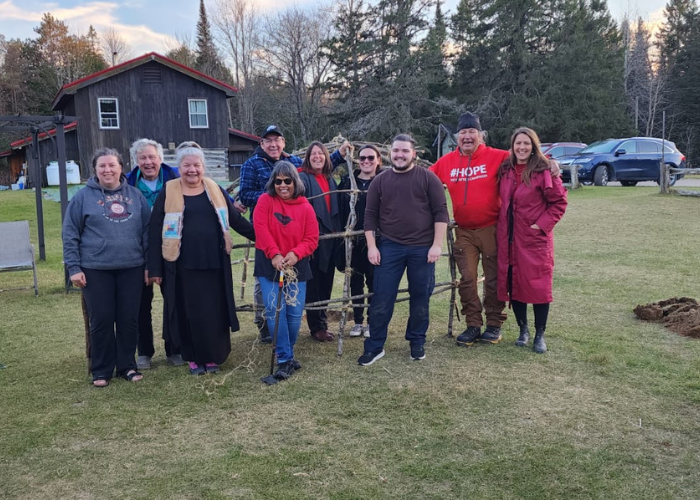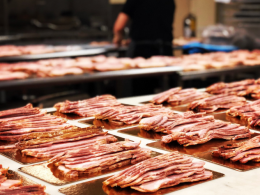Suicide rates in Indigenous communities have been at crisis levels for so long we have grown used to them. The standard response to suicide – crisis intervention and suicide prevention – hasn’t made a substantial impact on the epidemic despite the good intentions of those practicing them. Elders, knowledge keepers and Indigenous mental health professionals have for a long time been talking about what is going in their communities and observed the ineffectiveness of the solutions offered by Western mental health professions.
Out of some of these conversations came Feather Carriers, a non-profit suicide intervention training organization originating in the Muskoka-Simcoe region of Ontario and now available across Canada. The training is offered to those who address suicide in Indigenous communities, such as emergency service workers, police, social workers and health workers, as well community leaders, coaches and mentors.
The training is developed from traditional and modern cultural teachings, and from these teachings comes a new way to address suicide and other types of self-harm: the idea of life promotion. In contrast to the standard approach of convincing the individual not to commit suicide, life promotion teaches how to find meaning and connection to life, the way to live a long and good life. Life promotion is a concept that is embedded in the cultures of all Indigenous peoples, but it is not always identified as such.

The training takes the form of a teaching circle, opened and closed with ceremonies, meeting four times over the course of a year. The passage of a year helps reinforce the teachings and demonstrates how changes happen to a person over time. The participants learn to apply the life promotion teachings to themselves first, and are then able to teach it to others from their own experience and gifts. When they complete the training, they are offered an eagle feather to take up the responsibility of promoting life in their community and take on the role of the miigwanaabiik (Ojibway: Standing Feathers/Feather Carriers).
Feather Carriers’ teachings were developed through the involvement of many knowledge keepers and many traditions – Haudenosaunee, Anishinaabe, Métis, Mi’kmaq and others. When the teachers travel to another territory or cultural area, they come as guests offering the teachings as gifts from their home territory. The life promotion teachings from each territory the teachers go to are asked for and incorporated into the training.

The organization incorporates ceremonies and traditional governance structures as part of developing the strength of the life promotion teachings. If the organization practices what they teach, the teachings will be stronger and more genuine. This isn’t always straightforward nor does it come easy, but trying to develop a traditional governance structure is in itself a form of life promotion, building new ways of forming consensus and cooperation more consistent with an Indigenous way of looking at life.
For instance, as an organization Feather Carriers is governed by an Anishinaabe structure called the 8-pointed star. Each point on the star is represented by seven members of the G’chi Odewey Jig (Ojibway: the Big Hearted People) who discuss policies and make decisions. Each of these members has a responsibility to the group in keeping with their gifts as individuals. At the eighth point is the circle of the G’chi Ayaa’aa (Ojibway: Great Beings), a circle of elders who have been offered tobacco to answer questions the governing circle may have about what to do.
At each stage of the governance of Feather Carriers, ceremony is incorporated into our practices. For instance, before the annual gathering (The Eagle Staff Feast), there is a sweat lodge for the Big Hearted People and the teachers (Ojibway: gashkichigejig) so that they are spiritually prepared to make decisions and conduct the gathering. Another example is the sunrise ceremony which is held on the first day of every training. This helps focus the participants and wake up their spirit.
As Feather Carriers’ work spreads across the country, the goal is to evolve a sustainable organization that develops processes that anchor it spiritually. Sometimes the financial and the spiritual are in conflict, and having cultural processes that help develop integrity is essential to teaching life promotion. It is a new way of addressing the harms of colonization and assimilation, by looking at the causes rather than the symptoms.
Listen to a sample of one of the Feather Carrier teachings (The Miikaans/Little Roads) here.
Contact Feather Carriers through the program manager at [email protected].







